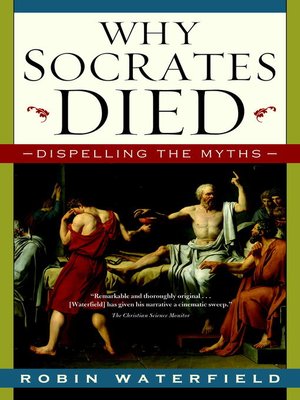
Sign up to save your library
With an OverDrive account, you can save your favorite libraries for at-a-glance information about availability. Find out more about OverDrive accounts.
Find this title in Libby, the library reading app by OverDrive.



Search for a digital library with this title
Title found at these libraries:
| Library Name | Distance |
|---|---|
| Loading... |
A revisionist account of the most famous trial and execution in Western civilization — one with great resonance for modern society
In the spring of 399 BCE, the elderly philosopher Socrates stood trial in his native Athens. The court was packed, and after being found guilty by his peers, Socrates died by drinking a cup of poison hemlock, his execution a defining moment in ancient civilization. Yet time has transmuted the facts into a fable. Aware of these myths, Robin Waterfield has examined the actual Greek sources, presenting a new Socrates, not an atheist or guru of a weird sect, but a deeply moral thinker, whose convictions stood in stark relief to those of his former disciple, Alcibiades, the hawkish and self-serving military leader. Refusing to surrender his beliefs even in the face of death, Socrates, as Waterfield reveals, was determined to save a morally decayed country that was tearing itself apart. Why Socrates Died is then not only a powerful revisionist book, but a work whose insights translate clearly from ancient Athens to the present day.
In the spring of 399 BCE, the elderly philosopher Socrates stood trial in his native Athens. The court was packed, and after being found guilty by his peers, Socrates died by drinking a cup of poison hemlock, his execution a defining moment in ancient civilization. Yet time has transmuted the facts into a fable. Aware of these myths, Robin Waterfield has examined the actual Greek sources, presenting a new Socrates, not an atheist or guru of a weird sect, but a deeply moral thinker, whose convictions stood in stark relief to those of his former disciple, Alcibiades, the hawkish and self-serving military leader. Refusing to surrender his beliefs even in the face of death, Socrates, as Waterfield reveals, was determined to save a morally decayed country that was tearing itself apart. Why Socrates Died is then not only a powerful revisionist book, but a work whose insights translate clearly from ancient Athens to the present day.







